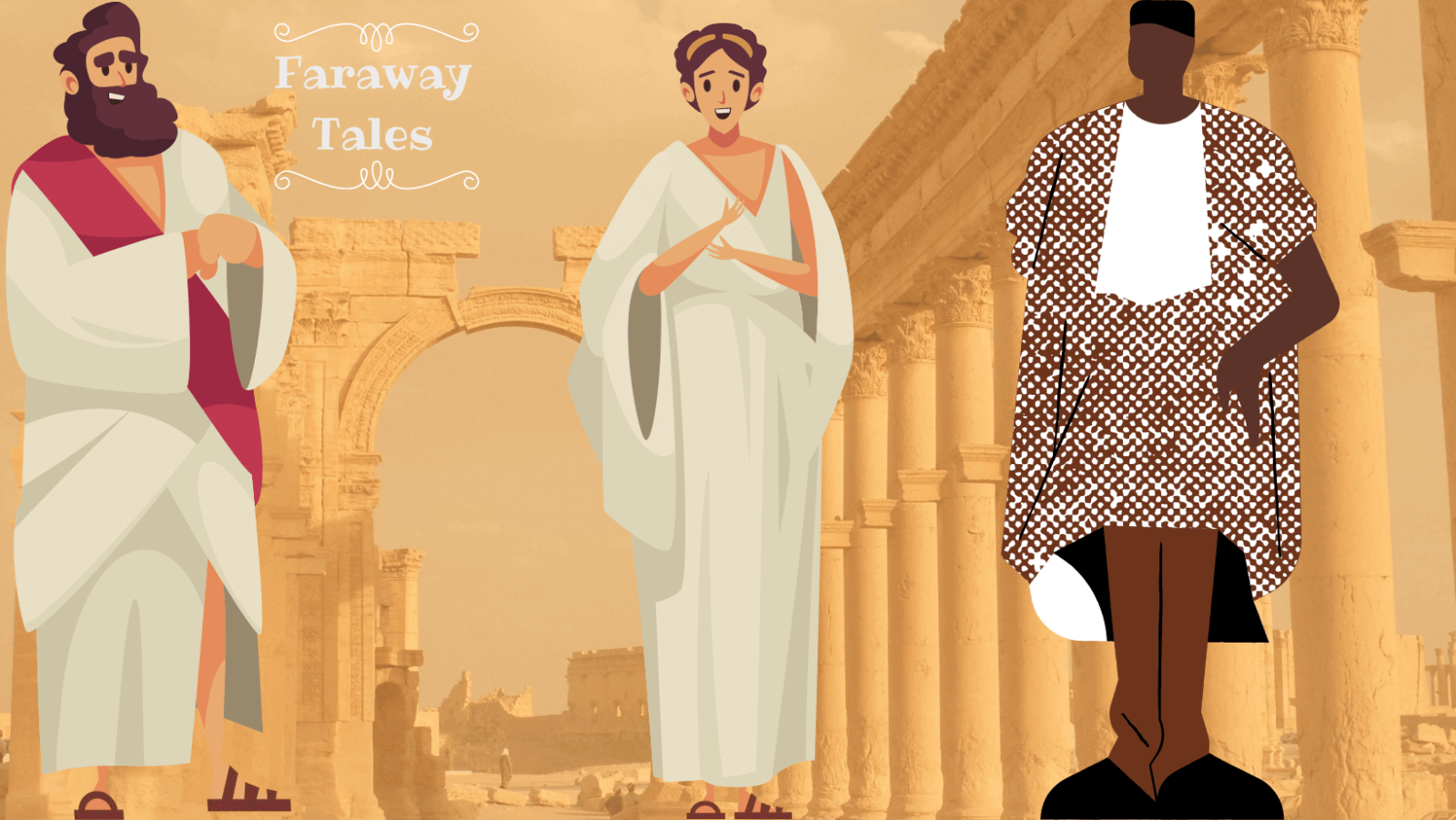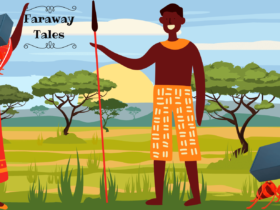|| A Syrian folklore ||
Ahmed was the only son of the wealthiest merchant in Damascus. The old merchant loved his son more than anything else in the world. The son also loved his father equally.
The father gave his son everything he wanted. He even planned his business trips so that they are never apart for more than few days. Whenever he away, Ahmed was looked after by Pedro, a trusted slave and bodyguard. Those were the days when rich people had slaves come from Africa to Europe.
But Pedro, a tall and imposing young man, was hardly a slave. He was given rich clothes and treated with respect by both father and the son. Even though Pedro was years older than Ahmed, they both were firm friends.
When Ahmed grew up to be a youth, his father decided to send him to Jerusalem to be educated. Even though he didn’t like staying away from his son, he knew that was the right decision. He gently broke the news to Ahmed.
Ahmed fought back tears and said, “I’ll do as you wish father. I know you only have my best interests at heart. But may I take Pedro with me?”
“No, my son” answered his father, gently. “It would be an unnecessary display of wealth. As a young man, you must also learn your duties by yourself.”
Ahmed, who had never seen his father refuse him anything, was surprised but did not pursue the matter.
He left for Jerusalem. In the Holy City, he found new interest in education. He also gradually learnt the joy of doing things by himself. He wandered in the city in the narrow lanes, admiring the architecture and the culture.
His father wrote to him many times and he diligently responded back. A year passed. Ahmed opened another letter from home.
It had a different handwriting on the envelope.
The letter brought the news of his father’s untimely death. Ahmed was devastated. This could not have happened. Tears blurred his vision and he sat rooted to the spot for a long time.
Finally he gained his composure and decided to hurry home. He took a trustworthy rabbi (Jewish priest) to accompany him through the matters at home and for strength through his grief.
On arrival at Damascus, he was greeted by a large crowd of people who expressed their sympathy with him and spoke in terms of highest praise of his father’s goodness.
After the funeral, Ahmed called the leading townspeople together to hear his father’s will read, for he was certain that his father would have left many gifts to charities. That was indeed the case and people murmured their appreciation.
Then suddenly the late merchant’s friend, who was reading the will, paused.
“I fear there must be a mistake,” he said, in a whisper to Ahmed.
“Go on,” urged the assembled people, and the man read in a strange voice:
“And now, having as I hope, faithfully performed my duty to the poor, I bequeath the rest of my possessions unto my devoted slave, Pedro.”
“Pedro!” cried the astonished crowd.
The man continued reading the will, “Ahmed, my son, may choose any one item among my possessions within 24 hours of reading my will”
Ahmed was shocked and disappointed. Pedro gave no reaction and remained impassive.
The crowd dispersed with mutterings of sympathy mingled and astonishment, but out of earshot of Ahmed, all said the merchant must have been mad to draw up so absurd a will.
He consulted with his father’s friend and the rabbi, but, although they re-read the document many times, they could find no fault or flaw in it. “Legally, this is correct and in perfect order and cannot be altered,” said the friend.
The rabbi advised Ahmed to be calm and sleep over it. Ahmed, who was exhausted with grief and rage and surprise, soon fell into a deep sleep, and when he awoke the rabbi was reciting his morning prayers.
The rabbi said, “I have pondered deeply and long over your father’s words and came to the conclusion that your father was a truly wise man. Do as I suggest and it will be all fine,” he said.
Ahmed interrupted with a gesture of disapproval. What was the one thing he could choose? But he had no choice nor any idea how to proceed, so he listened to what the rabbi had to tell.
The townspeople gathered early to hear Ahmed make his choice of one thing—and one only—from his father’s possessions.
“Acting under the terms of my father’s will,” Ahmed said, solemnly, “at this moment when all, before division, belongs to his estate, I choose but one of my father’s possessions—Pedro, the slave.”
Then everybody saw the wisdom of the strange will, for with Pedro, Ahmed came to inherit his father’s vast wealth. The old merchant had left all his wealth to Pedro instead of his son, so that in case there is a delay in Ahmed’s journey to Damascus, any cunning person may not try to rob or take off with the wealth. To Pedro, who still stood motionless, Ahmed said, “And you, my good friend, are completely free. You can go wherever you want. You shall have everything comfortable for the rest of your days.
“I am where I need to be. You are my only family and I’ll gladly stay here serving you” Pedro answered.
Like (0)







Leave a Reply